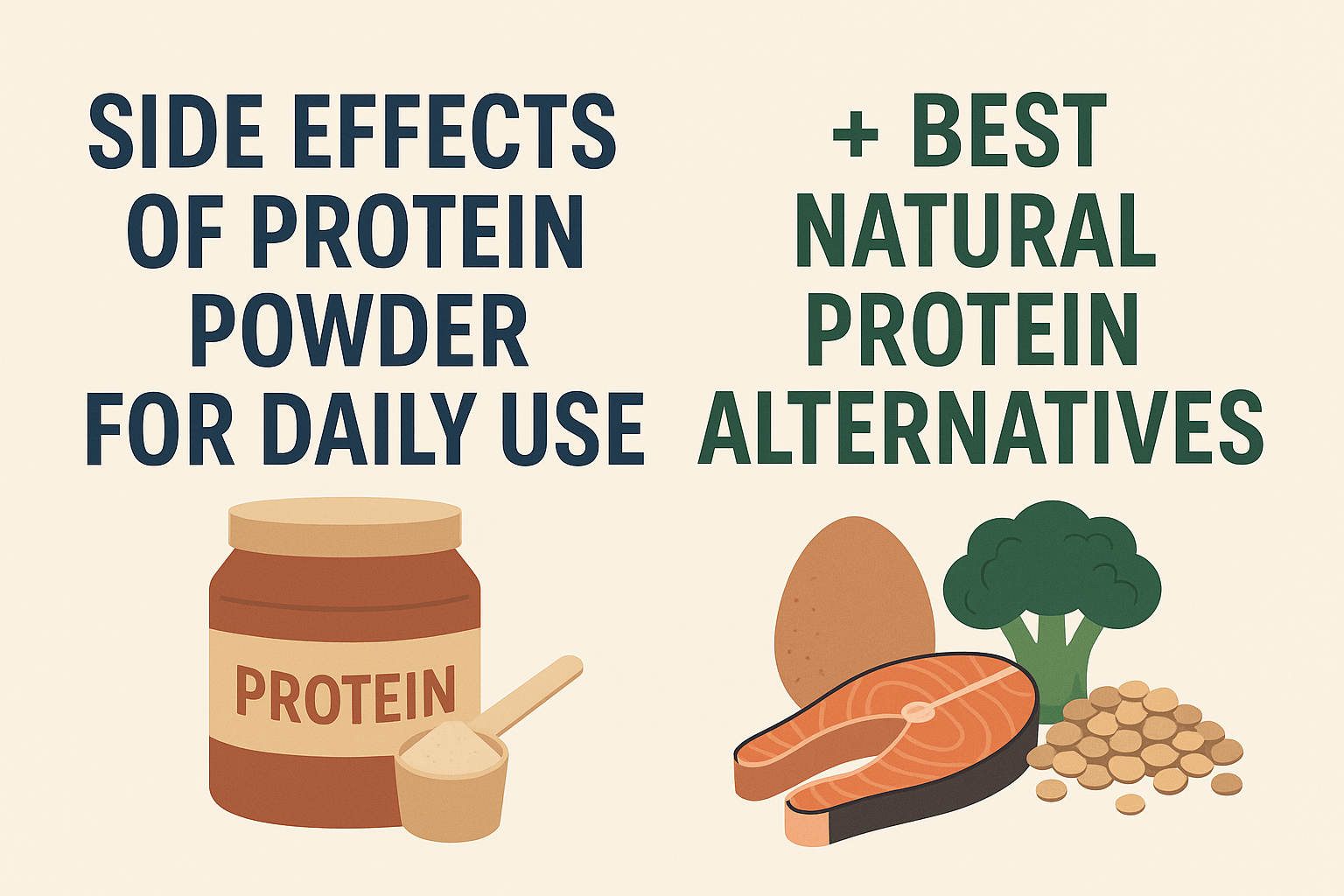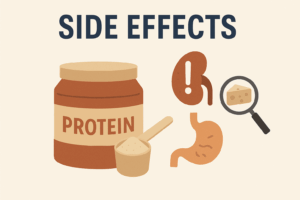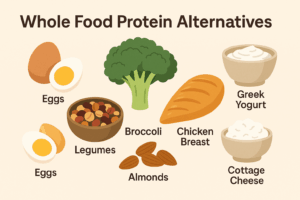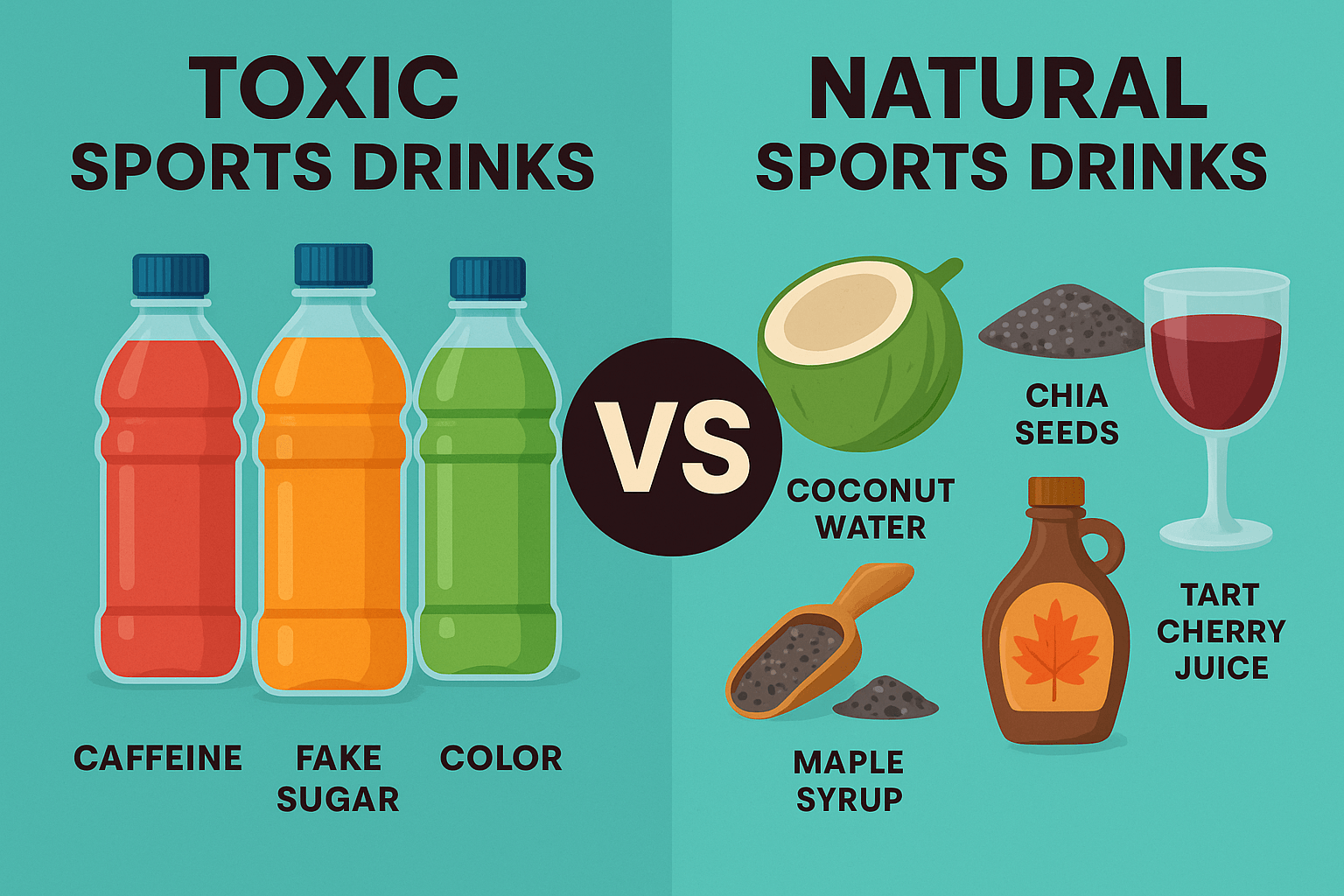Exercise Daily _ Side Effects of Protein Powder for Daily Use + Natural Alternatives
What is Protein Powder (Really)?
Most commercial protein powders, especially whey-based, are industrial by-products — leftovers from the cheese manufacturing process. That’s right: whey protein is the watery residue that separates from curd during cheese production.
The issue? There’s no transparency about what kind of milk or cheese was originally used, how the cows were raised, or whether the milk was treated with hormones or antibiotics. Once extracted, this residual whey is processed at high heat and filtered multiple times, stripping it of natural nutrients and loading it with artificial sweeteners, fillers, and preservatives.
This process includes pasteurization, drying into powder form, and chemical treatments that can denature amino acids, reducing their quality and bioavailability. What starts as a by-product becomes an ultra-processed isolate with very little resemblance to natural food.
The Side Effects of Protein Powder for Daily Use
Using whey protein powder daily might sound healthy — but it’s not always the case. Here’s why:
- Kidney Strain: Excess protein, especially from artificial isolates, can overburden the kidneys, particularly in individuals with pre-existing renal conditions.
- Bloating & Digestive Issues: Many users report gas, bloating, and stomach cramps due to lactose, sugar alcohols, or hard-to-digest artificial compounds.
- Unknown Origins: Whey protein lacks traceability. You rarely know what animal product you’re ingesting.
- High Processing: The more processed a product is, the fewer natural benefits it provides. Whey protein is ultra-processed and devoid of enzymes and cofactors needed for proper digestion.
Clinical studies confirm that unmonitored protein supplement use can result in adverse renal and gastrointestinal effects, especially when taken long term.
Are You Overdosing on Protein?
Most people overestimate how much protein they need. According to the USDA Dietary Reference Intake, the average adult only needs about 0.8 grams of protein per kilogram of body weight per day. That’s about 56 grams for the average man and 46 grams for the average woman.
Active individuals or athletes may need slightly more — around 1.2 to 2.0 grams/kg — but it’s easy to reach this goal through whole foods. Consistently consuming protein powder above your daily needs may increase your risk of kidney overload, calcium loss, and metabolic stress.
Better Alternatives to Protein Powder
Nature already gave us the perfect protein sources — no need for industrial leftovers. Let’s look at the top-performing natural protein alternatives.
1. Organic Pasture-Raised Eggs
Eggs are the gold standard of protein. One large egg contains 6–7 grams of complete protein, including all 9 essential amino acids. They’re more bioavailable than most meats or powders, meaning your body absorbs the protein efficiently.
🎥 Watch: Protein Powder Side Effects & Best Natural Alternatives
Still using protein powder daily? Watch this short video to learn about its side effects and discover the best whole-food alternatives like eggs, lentils, and seeds.
To get the full benefit, always choose organic, pasture-raised eggs. These are higher in omega-3s, vitamin D, and free from hormones or antibiotics. Have them boiled, scrambled, or poached — a perfect protein for daily use.
2. Legumes (Beans, Lentils, Chickpeas)
- Lentils (18g protein per cooked cup)
- Chickpeas (15g)
- Black Beans (15g)
- Kidney Beans (13g)
These are not only high in plant protein but also rich in fiber, minerals, and antioxidants.
3. Nuts & Seeds: Nature’s Protein Capsules
- Peanuts (25g protein per 100g)
- Almonds (21g)
- Pistachios (20g)
- Sunflower Seeds (19g)
- Chia Seeds (17g)
- Hemp Seeds (31g) – complete protein source
Perfect for smoothies, salads, or on-the-go snacks. Avoid salted or flavored options — stick to raw or dry-roasted versions for best results.
4. High-Protein Whole Foods List (Per 100g)
| Food | Protein Content |
|---|---|
| Pasture-Raised Eggs | 13g |
| Lentils | 18g |
| Chickpeas | 15g |
| Tofu (firm) | 17g |
| Greek Yogurt (plain) | 10g |
| Tempeh | 19g |
| Hemp Seeds | 31g |
| Chicken Breast (cooked) | 32g |
How to Build a High-Protein Plate Without Powders
It’s easier than you think to reach your daily protein needs with real food. Here’s a sample day:
- Breakfast: 3 pasture-raised eggs scrambled in olive oil + a slice of sprouted toast + chia smoothie with almond milk
- Lunch: Lentil salad with mixed greens, avocado, and sunflower seeds
- Snack: Handful of pistachios + Greek yogurt
- Dinner: Stir-fried tempeh with broccoli, brown rice, and a side of kidney beans
This daily plan easily exceeds 80 grams of clean, complete protein — no powder needed.
Why Whole Food Protein is Better
Unlike powders, whole foods contain natural enzymes, vitamins, and minerals that aid absorption and metabolism. They’re gentler on the digestive system and better for long-term health.
According to the Harvard T.H. Chan School of Public Health, diets rich in plant and whole-food protein sources are linked to better metabolic health, lower risk of cardiovascular disease, and longer lifespan.
Final Thoughts: Choose Natural, Not Processed
Skip the artificial scoops. Focus on a clean, complete, and whole food approach. Eggs, legumes, seeds, and nuts offer powerful protein without the side effects. If you must supplement, look for organic, plant-based, minimal-ingredient options.
Still unsure? Talk to a licensed sports nutritionist or registered dietitian before making changes. Your body deserves real fuel — not powdered residue.
Eat daily, sleep daily, exercise daily.
Disclaimer: This article is for informational purposes only. Always consult with a certified sports nutritionist or dietitian before making dietary changes.






